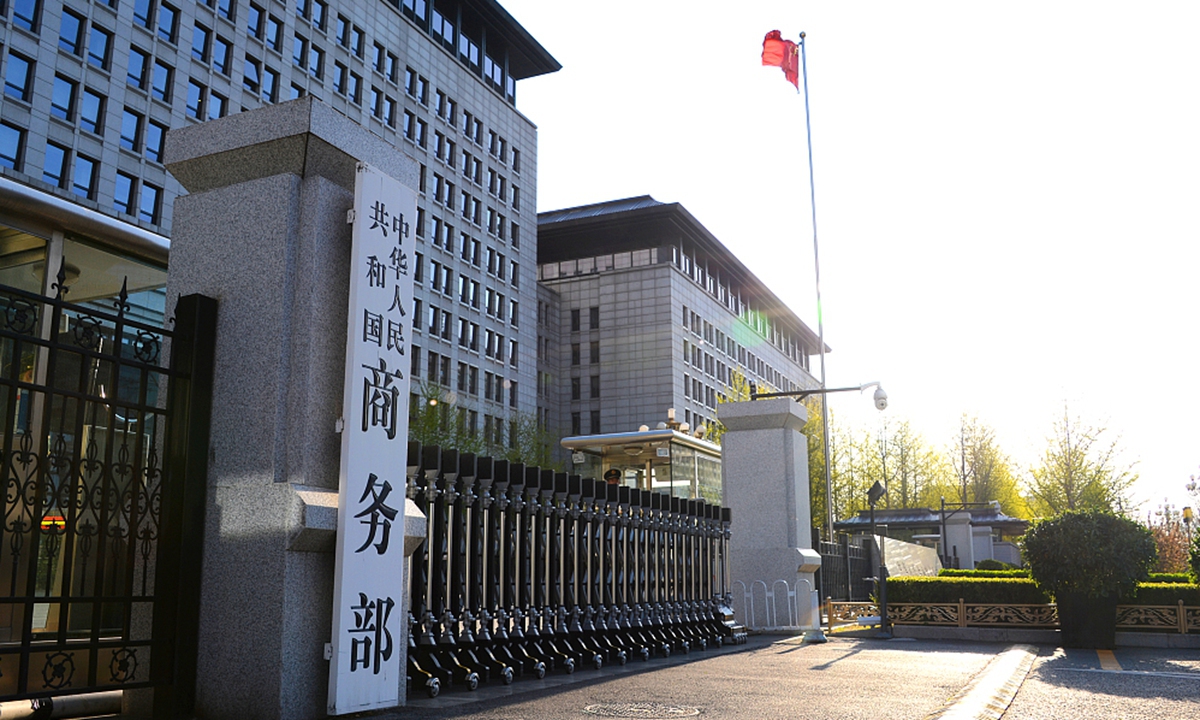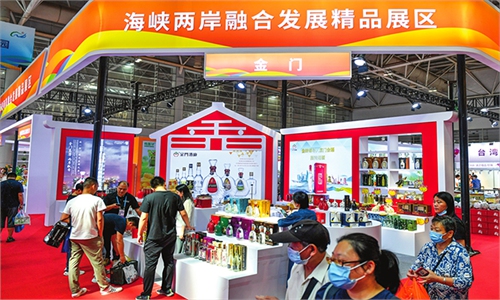Chinese mainland takes anti-dumping measures on polycarbonate imports from Taiwan amid DPP secessionist Lai's 'transit' in US

The Ministry of Commerce Photo: VCG
The Ministry of Commerce (MOFCOM) on Monday announced anti-dumping measures on polycarbonate imports from Taiwan region, requiring a deposit to be paid for import, after a months-long investigation concluded that dumping of polycarbonate had harmed industries on the mainland.
The move drew attention as it came as the secessionist Democratic Progressive Party (DPP) authorities on the Taiwan island once again sought to collude with US politicians to challenge the one-China principle, with a so-called "transit" of Taiwan's deputy regional leader Lai Ching-te in the US.
Experts said that while anti-dumping measures are a normal trade remedy to protect relevant industries, the DPP's secessionist moves have added uncertainty to cross-Straits ties, for which the one-China principle is the foundation. The DPP authorities' separatist actions will only harm Taiwan-based enterprises, industries and the regional economy.
The MOFCOM started an anti-dumping probe into polycarbonate imports from Taiwan region in November 2022. On Monday, the ministry said preliminary results showed that there was dumping of imported polycarbonate originating in Taiwan, which materially harmed the polycarbonate industry in the Chinese mainland.
As a result, the ministry decided to take anti-dumping measures against imports of polycarbonate. Starting from Tuesday, import operators shall provide the corresponding deposit to the mainland's customs when importing polycarbonate from the island, with a ratio ranging from 16.9 to 22.4 percent.
Polycarbonates are used in electronic appliances, as well as the plate, film, automotive, optics, packaging, medical equipment and security-related fields. The import tariff rate for polycarbonate imports from the island to the mainland was zero in 2018-22, the investigation period.
According to statistics from the General Administration of Customs, the volume of polycarbonate imports from Taiwan accounted for 23 percent of the mainland's total imports in 2022.
The anti-dumping measures announced on Monday mean relevant industries will have time to rectify, and if they refuse to rectify, the MOFCOM could take further anti-dumping measures, Tang Yonghong, deputy director of the Taiwan Research Center at Xiamen University, told the Global Times on Monday.
"To tell the truth, many of the island's exports to the mainland could be suspected due to dumping. If the mainland increases the scope and scale of anti-dumping investigations, there will be a huge hit on Taiwan's industries," said Tang.
The mainland has provided preferential policies for Taiwan-based businesses in the mainland, which are conducive to the development of Taiwan enterprises and the economic growth of the island, Bao Jianyun, director of the Center for International Political Economy Studies at Renmin University of China, told the Global Times on Monday.
Bao noted that the Taiwan authorities constantly seek to undermine cross-Straits relations through secessionist moves, despite the fact they are well aware of the island's economic dependence on the mainland.
"Existing economic and trade ties between the mainland and Taiwan are based on the one-China principle. If this political foundation and principle is damaged, it will be difficult to maintain existing trade relations," said Bao.
The fundamental cause of the continued tension across the Taiwan Straits is the Taiwan authorities' attempt to seek US support for "Taiwan independence" while the US is bent on using Taiwan to contain China, said a spokesperson of the Ministry of Foreign Affairs on Sunday, regarding Taiwan region's deputy leader Lai Ching-te's US "stopover".
Analysts said that the DPP authorities' secessionist moves will only harm the island's enterprises, industries and the regional economy as a whole.
In the first half of 2023, Taiwan's annual export growth rate was merely 0.5 percent, but the growth rate of exports to the mainland and Hong Kong was as high as 9.8 percent, accounting for 42.3 percent of Taiwan's total exports, according to statistics from the island's economic department. The mainland is the main source of Taiwan's trade surplus.
During the same period, Taiwan-based companies invested $3.17 billion in the mainland, an increase of more than 52 percent year-on-year. Investment in June saw a year-on-year increase of 186 percent.

